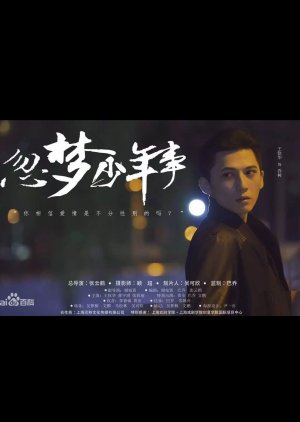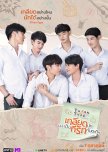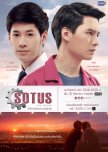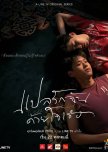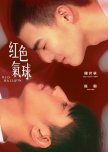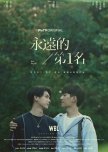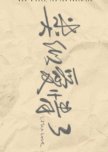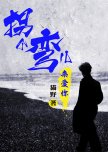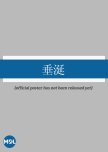
If in 'Find You in the Crowd', a 2017 short film, which marked the debut of Chinese screenwriter and film director Zhang Yun He ('Until the Autumn Wind Start', 'Love Ever After'), he explored homophobia, homophobia internalized, the love triangle and unrequited love, in 'Find You In The Dream' he returns to his thematic obsessions and addresses sexual repression, the relationships of close friends and the school environment, always having homosexual characters as protagonists.
In this latest short film, also from 2017, the Chinese filmmaker exposes repressions as the worst punishment that a person can receive or promote, by portraying a young man who lives sexually tied and repressed.
During the film, Zhang Yun He explores themes such as internalized homophobia and the repressed desire to live sexuality freely.
Seeing the wishing bottle shattered, Qiao Ke feels that his heart was broken and that both he and his lover had lost their lives.
Starring Wang Qinhua, Jiang Yuqi and Zhang Caili as Qiao Ke and Jiang Yunan, respectively, in just over 21 minutes, this sad film tells us about the memories of Qiao Ke, a young repressed homosexual who does not accept his true nature, and Today, eight years later, he still regrets not having been able to express his true feelings to Anan, his classmate in high school, with whom he has always been in love, but he will no longer have the opportunity to confess his love.
Also known as 'Hu Meng Shaonian Shì', 'Sudden Dream' and 'A Dream of Youth', the short film, written by Xie Wanrong, Baggio and Zhang Yunhe, guides us through the memories and thoughts of the protagonist, who expresses his pain and sadness for being a young man repressed by the fear of being who he really is, and for living a double life by hiding his true sexuality and refusing to recognize that he is in love with his dear friend.
Qiao Ke will believe at some point that Chen Donger, played by actress Zhang Caili, is also in love with Nam, but she is the supportive friend that every gay should have by their side.
Since its public release, it has received good reviews, especially from specialists in this type of American cinema themes, since its presentation at film festivals in New York and Los Angeles, for the coldness and rawness with which the story is told. However, others maintain that it is a reality that in many cases is worse.
The cinematography, color palette and music as a whole reflect the tone of the film and expose the moods of the characters.
Also worth highlighting is the use of monologue. Qiao Ke guides the viewer on an introspective journey, revealing the relationship he has with his best friend, the boy he is in love with. Along the way, the protagonist discovers himself and questions himself for not having been sincere.In short, it is one of those films that talks about feelings, the passage of time and regrets. It is a story that shows a very everyday intrinsic truth in the lives of many homosexuals in the world, which manages to captivate the viewer. It is based on a creation that is far from great artifice, but that wins with that minimalist aspect.
Was this review helpful to you?

